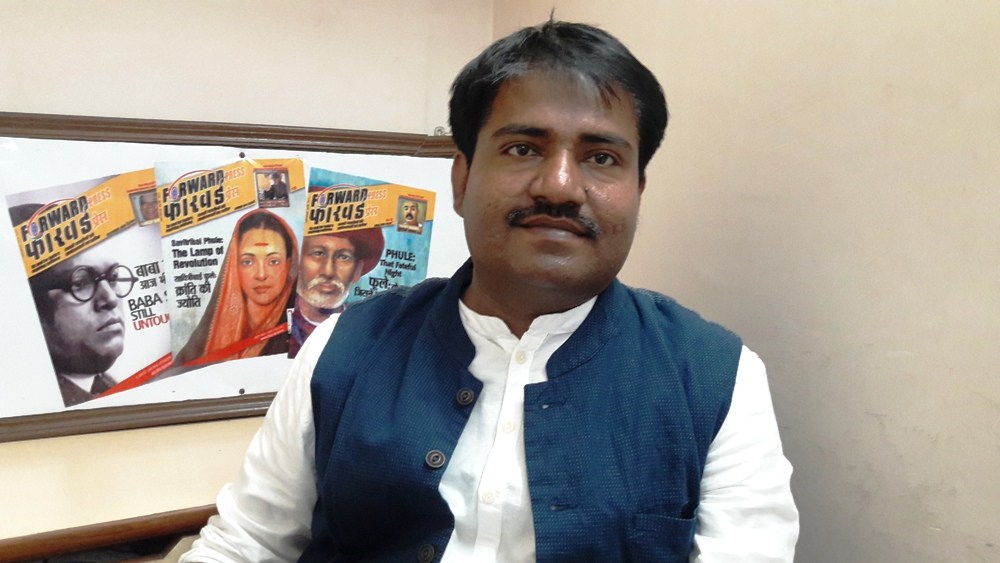While Dalitbahujans are poorly represented in institutions of higher learning, they are worse off in top science-teaching institutions. The presence of Dalitbahujans in these institutions is so small that one is tempted to ask whether they are reserved for the upper castes.
Bharat Kishore Mehar, a research scholar in Pondicherry University, had sent queries under the Right to Information (RTI) to all the campuses of Indian Institute of Science Education and Research (IISER) about how reservations were being implemented. The replies were shocking. It seems IISERs, established through an Act of Parliament in 2010, have been turned into Gurukuls referred to in Manu’s scriptures, where only the upper castes could get entry.
For instance, there is no provision for reservation in IISER, Mohali. Three posts each reserved for Scheduled Castes (SCs) and Other Backward Classes (OBCs) are lying vacant in IISER-Kolkata. In IISER-Bhopal, 33 reserved posts are lying unfilled while in the IISER-Pune, five posts reserved for SCs, two for Scheduled Tribes (STs) and seven for OBCs have not been filled. Just one vacant post each is reserved for SCs and STs in IISER-Behrampur, Odisha, while IISER-Tirupati has no vacancies (see Table 1).
Table 1: Teaching staff vacanies
| SC | ST | OBC | GEN. | |
|---|---|---|---|---|
| IISER-Mohali | No reservations | |||
| IISER-Kolkata | 3 | 0 | 3 | 0 (Unclear) |
| IISER-Bhopal | 33 Vacancies: GOI reservation norms followed | |||
| IISER-Pune | 5 | 2 | 6 +1 (Associate prof (humanities) | |
| IISER-Berhampur (Orissa) | 1 | 1 | 0 | 8 |
| IISER-Tirupati | 0 | 0 | 0 | 0 |
| IISER-Thiruvananthapuram | 0 | 3 | 5 | 1 |
Bharat Kishore also sought to know from IISER-Tirupati the category-wise break-up of professors and assistant professors working at the IISERs. There is one professor each in the Biology, Mathematics and Chemistry departments, and all three are from the general category. There is no professor in Physics, Earth and Climate Sciences departments. As for assistant professors, in the Biology department, there is only one OBC while 10 are from the general category. In the Chemistry department, there are three assistant professors each from SC and OBC categories and nine from general category. The Physics department has three OBC and seven general-category assistant professors. In the Mathematics department, all the eight assistant professors are from the general category. Earth and Climates Sciences department has one assistant professor, who is from the general category.
Table 2: Professors
SC ST OBC GEN
IISER-Mohali 0 0 0 10
IISER-Kolkata 0 0 2 40
IISER-Bhopal 4* 1* 4* 115*
IISER-Pune # # # #
IISER-Berhampur (Orissa) 0 0 0 2
IISER-Tirupati 0 0 0 3
IISER-Thiruvananthapuram
*Numbers include both professors and assistant professors
#Numbers not provided
Thus, there are three professors in the five departments of IISER-Tirupati and all of them are from the general category. Among the 45 assistant professors, three are SCs, seven OBCs and the remaining 35 are from the general category.
Meher also asked for the category-wise distribution of PhD researchers in the institute. He was informed that of the 95 PhD scholars, three are SCs. Thus, IISER-Tirupati has no ST teacher or PhD scholar.
Table 3: Assistant Professors
SC ST OBC GEN.
IISER-Mohali 2 0 1 50
IISER-Kolkata 2 0 3 28
IISER-Bhopal 4* 1* 4* 115*
IISER-Pune 0 0 3 33
IISER-Berhampur (Orissa) 1 0 3 22
IISER-Tirupati 3 0 7 35
IISER-Thiruvananthapuram 7 0 6 28
*Numbers include both professors and assistant professors
The situation at IISER-Kolkata is no different. Here, too, the Dalitbahujans have a minimal presence. Of the 42 professors, 40 are from the general category and two are OBCs. Among the 46 associate professors, one is an SC and the remaining are from the general category. There are 33 posts of assistant professor (Grade-1) in the institution. Of them two are SCs, three are OBCs and the rest (28) are from the general category.
Table 4: PhD Scholars
SC ST OTHERS
IISER-Mohali 43 10 516
IISER-Kolkata 10% 1.80%
IISER-Bhopal # # #
IISER-Pune 6.52% 1.40%
IISER-Berhampur (Orissa) 0 0
IISER-Tirupati 4 0 91
IISER-Thiruvananthapuram 4%
IISER-Pune has also been flouting the reservation norms with impunity, though the situation there is somewhat better than in IISER-Tirupati and IISER-Kolkata. Here, at the assistant professor level, five posts reserved for SCs, two for STs and six for OBCs are vacant. There are a total of 36 assistant professors, of which 33 are from the general category and three are OBCs. All professors and associate professors are from the general category. The explanation given is: “As per the guidelines issued by the Ministry of Human Resource Development vide letter No. 50-26/2016-TS.VII dated September 18, 2017, reservation is applied [only] at the level of Assistant Professor.” Among PhD scholars, the share of SCs and STs is 6.25 per cent and 1.04 per cent, respectively.

It is clear that the negligible presence of Dalitbahujans in premier science-teaching institutions is due to violation of reservation norms. The dwijs (upper castes) believe that non-dwijs (lower castes) are not supposed to study the sciences. Sonajharia Minz, the newly appointed vice-chancellor of Sido Kanhu Murmu University, Dumka, Jharkhand, narrated to FORWARD Press how her teachers believed that Adivasi girls were not meant to study mathematics. She took it as a challenge to prove her teachers wrong and she did.
(Translation: Amrish Herdenia; copy-editing: Anil)
Forward Press also publishes books on Bahujan issues. Forward Press Books sheds light on the widespread problems as well as the finer aspects of Bahujan (Dalit, OBC, Adivasi, Nomadic, Pasmanda) society, culture, literature and politics. Contact us for a list of FP Books’ titles and to order. Mobile: +917827427311, Email: info@forwardmagazine.in)
The titles from Forward Press Books are also available on Kindle and these e-books cost less than their print versions. Browse and buy:
The Case for Bahujan Literature
Dalit Panthers: An Authoritative History







